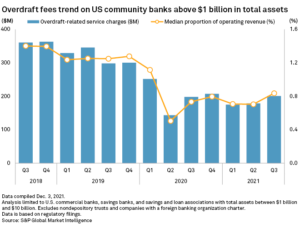Finance Service Institutions (FIs) and fintechs were often seen as complete rivals. Fintech providers disrupted the market looking to compete against traditional FIs for business, resulting in many believing that fintechs would start to eat the big banks’
lunch.
However, the dynamic between the two has since shifted from competition to collaboration. While some fintechs may still desire to further grab a share of the consumer’s wallet, many have acknowledged that partnering up with traditional players has great
benefits, especially as FIs have the detailed expert knowledge of the industry and an already established customer base.
FIs and fintechs have learnt that they can exist on the same side of the coin. And this started with the realisation that each financial provider has a skill that the other can learn. FIs can learn how to become more innovative and fintechs can learn how
to scale. But more collaboration needs to happen for traditional providers to maintain competitiveness in a modern landscape.
Moving away from legacy tech
According to IDC, while banks spent $1.3 trillion on digital transformation in 2018, more than $900 billion went on maintaining legacy infrastructure. That’s close to 70% of digital transformation budgets being wasted on maintaining outdated legacy systems.
For true innovation to occur, FIs must move beyond the legacy systems that hold them back. In fact, an IDC report predicted that 73% of FIs have payment infrastructures that are not well equipped to handle payments for 2023 and beyond.
Today’s market requires modern payment technology which can support, and even provide interoperability between fiat, crypto, gaming currencies, loyalty points and value denominations that may not exist today. This explains why fintechs with modern banking
systems handled $83.3 trillion worth of global consumer payments (60%) in 2020 alone.
Creating new digital payment journey’s is how FIs will stay competitive in today’s climate – and this is where collaborating with innovative technology providers will prove most advantageous.
Collaboration over competition
Today, the focus must be on collaboration. FIs have the loyal client base that new disruptors require to scale and expand their usage and turnover. Whereas, fintech companies naturally support technology that is faster to deploy, highly configurable and
future ready.
Collaboration can dramatically cut the time taken to deliver new products to market and realise cost efficiencies across the value chain. With the right partnership, FIs will be able to expand their capabilities and offer a broader range of products that
customers are demanding more of.
The path to success
Consumers are demanding more secure and sophisticated solutions. And as the market continues to change, it’s crucial FIs find a solution to give customers the features that they want, without disrupting their core business and tech stack. A way they can
do this is through progressive modernisation, which can only be achieved by collaborating with a fintech provider.
The financial services industry has the responsibility to adopt a collaborative mindset and leverage partnerships that serve customers better. By favouring collaborative partnerships that foster creativity and a mutual exchange of technical know-how, FIs
will be able to successfully modernise their systems and reshape the role they play in the future of finance.
- ant financial
- blockchain
- blockchain conference fintech
- chime fintech
- coinbase
- coingenius
- crypto conference fintech
- fintech
- fintech app
- fintech innovation
- Fintextra
- OpenSea
- PayPal
- paytech
- payway
- plato
- plato ai
- Plato Data Intelligence
- PlatoData
- platogaming
- razorpay
- Revolut
- Ripple
- square fintech
- stripe
- tencent fintech
- xero
- zephyrnet













